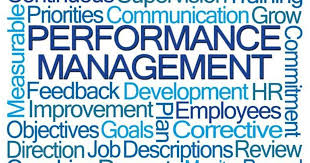As leaders, a key element of our job is to maximize the performance of each person on our team. We do this through hiring the right people, training, giving them tools/processes/programs/systems to help them perform, providing the right support, eliminating barriers to their performance, and constantly coaching/developing them.
We set performance goals, we measure their attainment against that performance.
And then we get to compensation. We try to develop compensation plans that incent people to achieve those goals.
Often, it’s very simple, some sort of compensation based on revenue, or possibly quota attainment.
But sometimes, that’s not sufficient for achieving our goals. We have things that are important beyond just revenue/quota. Perhaps new customer acquisition, or customer retention/growth. Sometimes we want to drive performance across the product line.
We modify the comp plan to cover all the areas important to performance. So an element of comp may be focused on revenue, another on new customer acquisition, and so forth.
Recently, I’ve seen other areas, for example a discussion looking at comp for pre-call research, even for keeping CRM updated. Or people in similar roles, have slightly different plans.
Over time, the comp plan becomes so complex, it no longer achieves what we want–maximizing the performance of each person on the team. Over my career, I’ve been victim of terrible comp plans. Plans that were so complicated, I gave up trying to figure things out and just focused on getting orders.
I’ve, also, inflicted comp plans so confusing, one had to have advanced statistical modeling training to understand the plan. (We changed that plan after the first quarter–something you never want to do, but the plan was so dysfunctional, we had to change it.)
One of the problems is too many managers believe their only tool to manage and incent performance is comp.
But we have other important tools to leverage. The most important is, probably, the performance plan. The performance plan is simply that–it is where we agree, with each person, on how their performance will be evaluated. We can establish a number of performance criteria/goals. They can include all the items that I discussed above. They can include learning/developmental goals. There are a variety of elements we can leverage to both define what’s important in doing the job and to measure those items.
What’s the meaning of the performance plan?
Again, it’s where we agree, with each individual, the critical elements of performance. It can, and often is, unique to the individual–we can never do this with comp plans. It can be the basis for driving not only current year performance, but also focus development for future opportunities.
The performance plan is scorecard. It can be the basis for getting promotion, or increases in compensation. It is the basis of being able to keep the job. Not achieving our performance objectives, consistent non performance is the basis for being moved into a different role or being terminated.
But too many people don’t have strong performance plans in place. For many, the only way they can understand performance is based on how they are doing against the comp plan.
And then when managers have those “tough discussions,” people are confused, they haven’t understood how performance is being evaluated, and how they are doing against those expectations.
I’m always surprised by the amount of discussion in performance management that is based on the comp plan, and how we hear virtually no discussion on how we put in place, collaboratively, strong performance plans. It’s like tying one arm behind our backs.

Leave a Reply